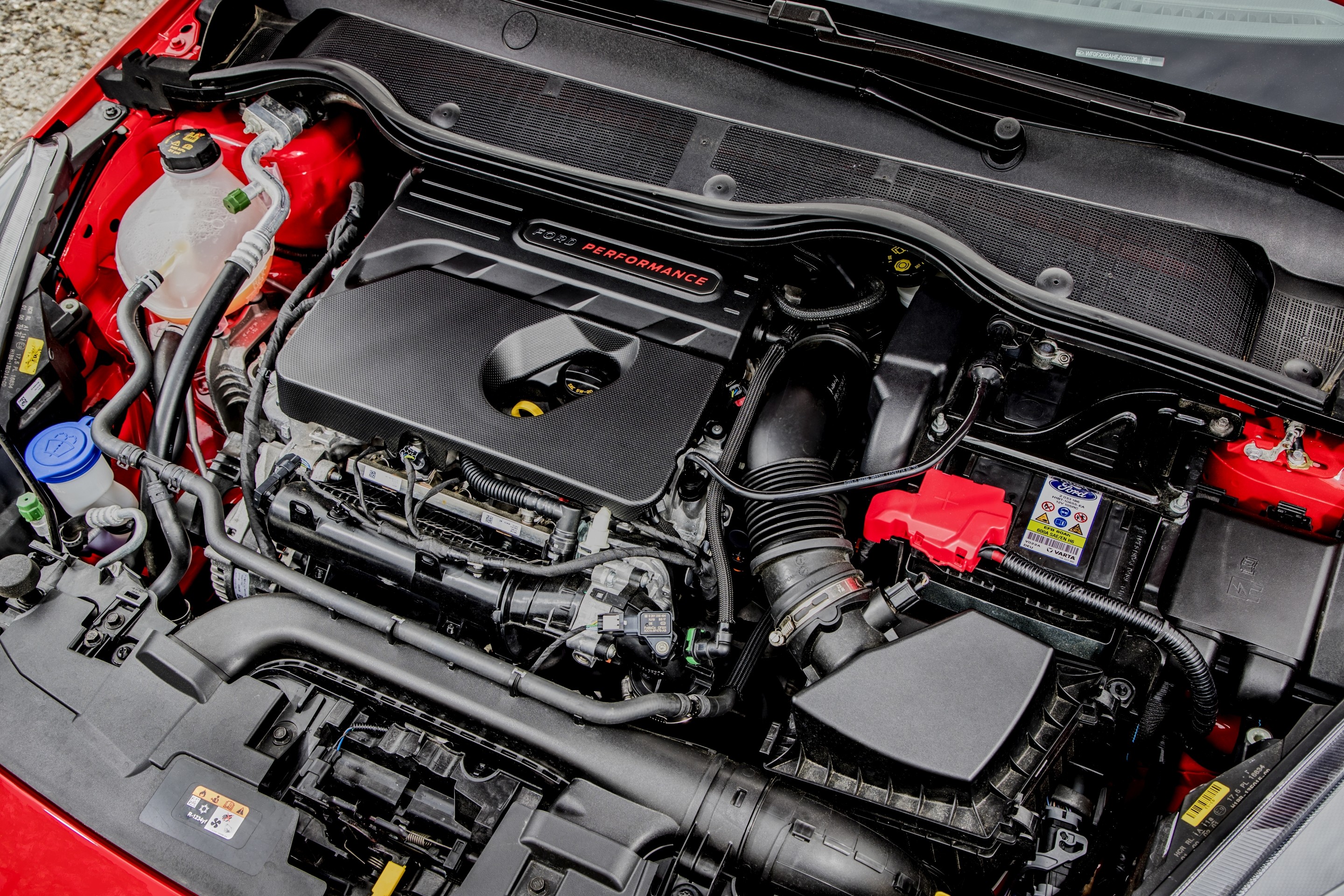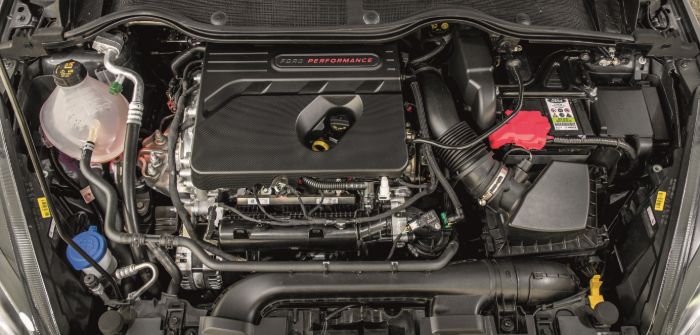Upgrade Your Ford Fiesta Engine for Better Fuel Economy and Power
Upgrade Your Ford Fiesta Engine for Better Fuel Economy and Power
Blog Article
The Future of Engines: Innovations Driving Sustainable Power Solutions
As the automotive industry navigates the vital transition in the direction of sustainability, the future of engines is increasingly specified by groundbreaking innovations. Electric engine improvements, alongside encouraging developments in hydrogen fuel cells and biofuels, are improving the landscape of power services. The appearance of hybrid systems further complicates this development, presenting both difficulties and opportunities to decrease exhausts efficiently. Coupled with the assimilation of expert system in engine design, these technical strides elevate vital questions regarding their lasting viability and influence on traditional standards. What might this suggest for the industry and consumers alike?
Electric Engine Developments
The development of electrical engine developments symbolizes a pivotal shift in the vehicle and aerospace sectors, driven by the immediate need for sustainable choices to fossil gas. This change is identified by substantial developments in battery innovation, power electronic devices, and electrical motor design, which collectively improve the performance and efficiency of electrical engines.
Current technologies have led to the development of lighter, extra energy-dense batteries, such as lithium-silicon and solid-state batteries, which assure longer arrays and shorter billing times. Additionally, renovations in electrical motor efficiency, such as the usage of permanent magnets and advanced cooling down systems, allow electric engines to run properly under differing conditions. These improvements not just boost car efficiency but likewise add to a decrease in total energy intake.
Furthermore, the assimilation of innovative software algorithms has maximized power administration in electric lorries, permitting regenerative braking and anticipating billing strategies. As producers progressively welcome electrical propulsion, the aerospace and auto industries are observing a standard change towards greener modern technologies. This evolution not only meets regulative demands but additionally aligns with consumer preferences for eco-friendly transportation solutions, strengthening electrical engines as a foundation of future lasting wheelchair.
Advancements in Biofuels
As the automotive and aerospace markets progressively focus on sustainable energy resources, innovations in biofuels become a complementary option to electric engines. Biofuels, stemmed from organic products such as plants, waste, and algae, present an ingenious avenue for lowering greenhouse gas emissions and dependence on fossil fuels.
Recent study has concentrated on enhancing the performance and sustainability of biofuel manufacturing. Second-generation biofuels make use of non-food feedstocks, minimizing competition with food supply and lowering environmental effect. Furthermore, developments in artificial biology have enabled the engineering of microorganisms to create biofuels better, causing greater yields and lower production expenses.
Additionally, the development of drop-in biofuels enables seamless assimilation right into existing framework, enabling a smoother transition for industries commonly depending on fossil fuels. ford fiesta engine. These gas can be utilized in present engines without adjustments, promoting their fostering across different sectors
Investments in biofuel innovation, along with helpful policies, are essential to drive technology and scalability. As the global community seeks to deal with climate change, biofuels use a pragmatic, prompt remedy that aligns with the overarching goal of sustainability in transportation and air travel.
Hydrogen Fuel Cell Innovation
A growing variety of business and researchers are exploring hydrogen gas cell modern technology as a feasible alternative to traditional power sources in transport find more info and energy systems. This innovation converts chemical power from hydrogen into electricity through an electrochemical reaction, with water as the only byproduct, making it an eco pleasant choice.
The core of hydrogen fuel cells is the fuel cell stack, where go hydrogen molecules are divided into electrons and protons. The flow of electrons creates electrical power, while protons relocate through a membrane layer to combine with oxygen from the air, creating water. This process leads to high efficiency and low discharges, positioning hydrogen fuel cells as a critical gamer in the transition to lasting power.
Substantial innovations have actually been made in enhancing the toughness and performance of fuel cells, alongside lowering costs via innovative production methods. The development of hydrogen production methods, such as electrolysis powered by eco-friendly energy resources, improves the sustainability of the overall system. As facilities for hydrogen refueling expands and production methods become extra reliable, hydrogen fuel cell technology holds fantastic pledge for decarbonizing various fields, including heavy-duty transportation and stationary power generation.
Hybrid Solutions and Their Impact
Hybrid systems stand for a considerable development in lasting engine technology, combining standard internal combustion engines with electric propulsion to optimize energy performance and minimize emissions (ford fiesta engine). This dual Get the facts method enables automobiles to use both power resources, making it possible for higher flexibility in energy usage and decreasing dependence on nonrenewable fuel sources

In addition to ecological benefits, hybrid systems offer customers a sensible transition towards fully electric automobiles. They relieve variety anxiousness by integrating the benefit of fuel with the advantages of electric propulsion, making them an attractive alternative for a larger audience.
The Duty of AI in Engine Style
Leveraging innovative algorithms and artificial intelligence techniques, the vehicle market is increasingly incorporating expert system (AI) into engine design procedures. AI enhances the efficiency and performance of layout by evaluating vast datasets to determine optimal configurations and efficiency specifications. This ability allows designers to mimic different operating problems and forecast engine habits under multiple scenarios, dramatically decreasing the moment and price connected with traditional prototyping methods.
Moreover, AI assists in the development of innovative materials and combustion procedures customized for sustainability. By enhancing gas efficiency and decreasing emissions, AI-driven styles straighten with international campaigns targeted at decreasing the carbon footprint of automotive engines. Equipment discovering algorithms can additionally anticipate upkeep needs, causing improved reliability and long life of engine parts.
Moreover, AI is important in the combination of electrification modern technologies, such as hybrid systems, where it can maximize battery management and power recuperation procedures. As the market relocates towards more sustainable power remedies, the duty of AI in engine design becomes significantly essential, driving technology and improving the performance of future engines. Ultimately, the cooperation in between AI and engine design declares a brand-new period of smarter, cleaner, and a lot more efficient auto technologies.

Verdict
In final thought, the future of engines is being formed by a merging of innovative modern technologies that prioritize sustainability. Electric engine advancements, biofuel growths, hydrogen gas cells, and crossbreed systems jointly add to a substantial reduction in discharges and environmental impact. Furthermore, the assimilation of expert system in engine design enhances efficiency and performance. These transformative remedies emphasize a commitment to creating a cleaner, more lasting vehicle landscape, inevitably benefiting both culture and the setting.
Electric engine improvements, alongside encouraging growths in hydrogen gas cells and biofuels, are reshaping the landscape of power remedies. Additionally, renovations in electrical motor performance, such as the usage of permanent magnets and advanced cooling systems, allow electric engines to operate properly under varying problems. By enhancing gas efficiency and reducing emissions, AI-driven designs straighten with international campaigns intended at minimizing the carbon footprint of automotive engines. As the market moves towards even more lasting power solutions, the function of AI in engine layout comes to be increasingly crucial, driving advancement and improving the efficiency of future engines. Electric engine advancements, biofuel advancements, hydrogen fuel cells, and crossbreed systems collectively contribute to a considerable decrease in emissions and ecological influence.
Report this page